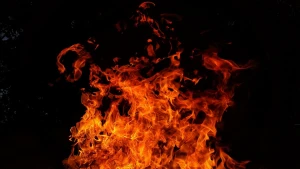
Russian agents in Germany raise money for war against Ukraine, recruit to Wagner PMC, and promote pro-Kremlin stance
Russian Military Intelligence (GRU), DPR proxies and right-wing extremists still work in Germany to split the EU
Activities of the Kremlin-backed agents in Germany were analyzed by the Insight News independent media outlet
In September, about 2,000 protesters gathered in a Cologne square to call on the German government to break ties with the Western coalition supporting Ukraine and establish diplomatic relations with Russia. "We must stop being vassals of the Americans," said right-wing German lawmaker Markus Beisicht, speaking from an improvised platform on the back of a truck. The crowd applauded while waving Russian and German flags.
A slim man in camouflage pants stood off to the side of the stage. He was a former Russian Air Force officer who changed his name from Rostislav Teslyuk to Max Schlund after moving to Germany ten years ago. He went to the Russian-occupied region of eastern Ukraine. He recently received funding from a Russian government organization to attend a conference in Moscow, where Russian President Vladimir Putin was the main speaker.
The government agency that bought him tickets to Moscow, Rossotrudnichestvo, is under EU sanctions for running a network of “agents of influence” spreading Kremlin propaganda.
Andrey Kharkovsky, Schlund’s stage neighbor, vows allegiance to the Cossack paramilitary group, which backs Moscow’s war against Ukraine. Schlund and Kharkovsky did not answer inquiries. Schlund wrote “Glory to Russia!” in a WhatsApp conversation with Reuters investigative reporters writing an article on pro-Putin operatives.
The German government also declined to comment in detail. Yet, the Interior Ministry stated that it takes “extremely seriously” any attempts to sway German policy, particularly “in the context of Russia’s war of aggression against Ukraine.”
Raising money in Germany for the war against Ukraine
Schlund's Ukrainian-born partner, Elena Kolbasnikova, who now lives in Germany, was the protest's public face in Cologne. She led the audience in chanting "Peace. Freedom. Self-determination!" with a light German accent.
Using flyers and social media, Kolbasnikova and Schlund planned a protest and several other pro-Russian rallies. Kolbasnikova rose to prominence in some anti-establishment groups in Germany last year after claiming that "Russophobia" cost her her job as a nurse, a claim that has yet to be objectively substantiated.
In her pitch to supporters, she does not advocate for a Russian invasion; instead, she emphasizes how the war would affect Germans, who are concerned about rising energy costs.
Several days ago Reuters revealed that Elena Kolbasnikova and Max Schlund donated funds to a Russian army division fighting in Ukraine,and the money was used to purchase walkie-talkie radios, headphones and telephones, – despite European Union sanctions which restrict the supply of such gear to Russia's military.
The new evidence gathered by Reuters indicates the couple are more actively involved in the Kremlin's military campaign in Ukraine than previously thought.
Recruitment to the Wagner PMC
Kolbasnikova manages chat groups in German and Russian. Groups are no longer open to the public. There has been at least one call for recruitment into the Wagner private military company, a Russian mercenary group that has been accused of grave war crimes.
Wagner's troops were recruited in Germany after the war began in 2014 in Donbas, according to expert Andreas Heinemann-Gruder. "It's no surprise that people are trying to do it again." The company "would take almost everyone who volunteered" in 2014. They are now more selective. Anyone who fights for Wagner and is identified today does not have a return ticket and is most likely a terrorist.
Connections to Russian Military Intelligence (GRU)
Last August, a panel discussion titled "Peace with Russia" was held as part of the German Communist Party's "peace and solidarity" festival in Berlin. Oleg Eremenko, a Russian-German businessman who was on the board, claimed that young Ukrainians are being taught to resent Russia. Eremenko has been active in German-Russian society for many years.
In the 2016 photograph, Eremenko is seen with Igor Girkin. Girkin is a former Russian intelligence officer who was recently found guilty in absentia by a Dutch court of taking part in the downing of Malaysia Airlines Flight 17 over Ukraine.
Girkin's group's VKontakte account shared the image as well.
Yeromenko admitted to working for the GRU, Russia's military intelligence service. In an interview with Reuters, he claimed to have served in Russia but refused to provide any details. "Served," he said simply. "Right now, let's assume I have civilian status in Germany."
So, the links between these individuals and radical groups in Germany and the Russian government and military intelligence are clear. There is no doubt that they pose a threat to European security, and German authorities must react appropriately.
-
Reuters special report revealed Russian influence agents in Germany: former military intelligence officer, right-wing extremists and Cossacks
- News














































